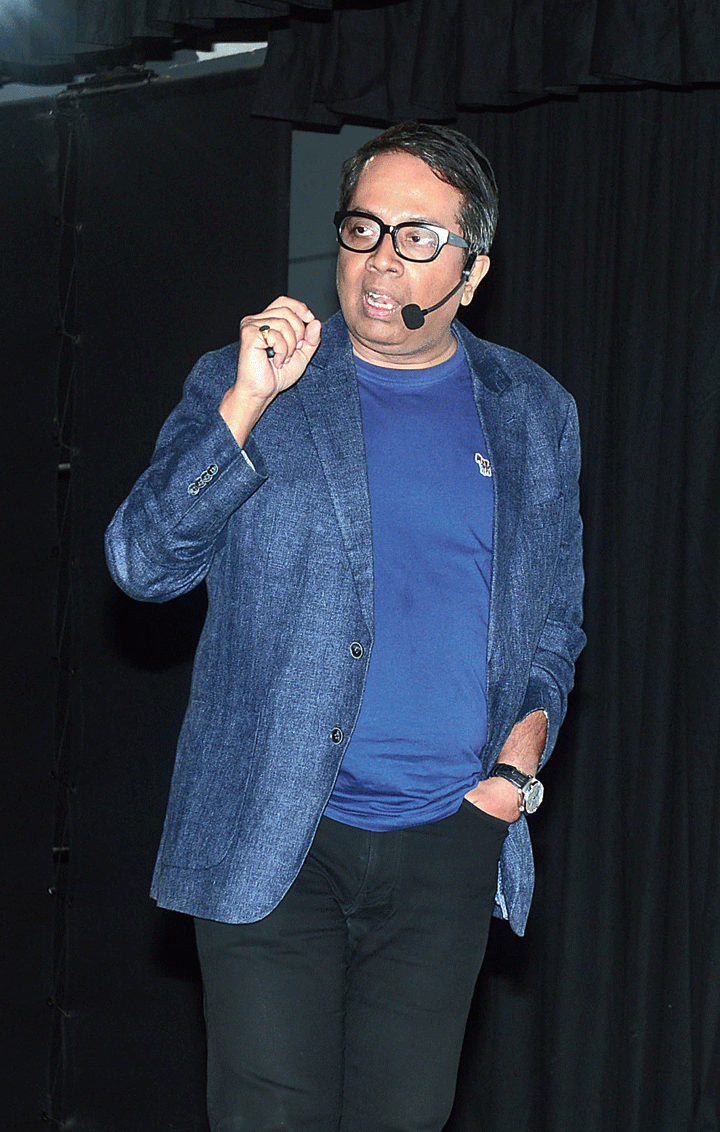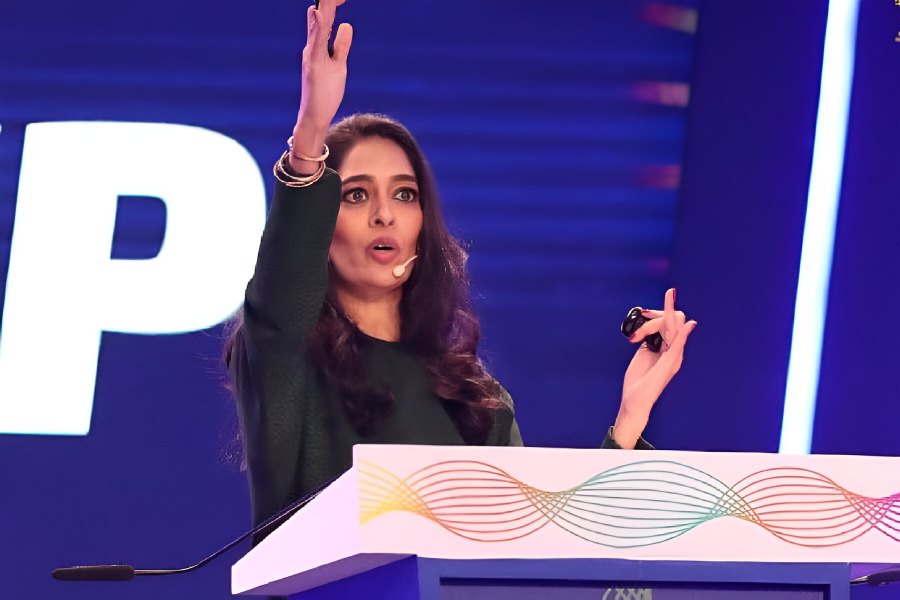A classic white T-shirt from an Italian luxury fashion brand costs nearly Rs 7,000.
A white T-shirt from a Swedish retail chain comes at around Rs 600.
Yet another white T-shirt from an Indian budget brand costs less than Rs 150.
The “so-called information overloaded” millennial consumer is buying all three, which means brands still rule.
In front of a young audience of marketeers, a veteran advertiser put the relevance of brands in perspective on Saturday.
“The so-called information-overloaded millennial is paying Rs 6,800 for a white Tee when its from Prada. He is also buying a white Tee for Rs 135 from FBB, probably even bargaining. Which means brand is still supreme with the people who are supposed to know everything,” Partha Sinha, the vice-chairman and managing director at McCann Worldgroup, said.
Sinha was speaking at the Masterclass of 2019, presented by the Advertising Club Calcutta, in association with The Telegraph, at an auditorium of Bhawanipur Education Society College.
There are 5,000 definitions of brands, he said, but to him, “a brand is a person’s gut feeling about a product, service or organisation”.
Then and now
Sinha compared the top global brands of 2009 and 2019. The older list was topped by Google and Microsoft but had multiple product brands like Coca Cola, McDonalds and Marlboro.
The 2019 list, topped by Amazon, was occupied by Google, Microsoft, Visa and Facebook. The only part-product-part-tech brand on the list was Apple. “There is a shift from product brands to service and technology brands. It shows that people are getting attracted to brands that deliver than brands that manufacture,” Sinha, an alumnus of IIT Kharagpur and IIM Ahmedabad, said.
Hold your horses
“With great data comes great responsibility,” he said. The access to abundance of data is alluring for marketers but Sinha cautioned them to self-regulate and avoid the temptation of over-targeting the consumer. “Hold your horses. You need to have empathy.”
The evolution of Internet has not taken the path it was supposed to, he said. “Internet was supposed to be a super-highway of information. With the advent of social media, it has become the super-highway of bias and prejudice.”
People over brand
Sinha spoke at length on the evolution of Indian brands, calling the 1991 liberalisation a watershed moment. “Before 1991, the access to lifestyle and wealth was limited to 1 million people. Then it got opened to 200 million people. Those 1 million people used to hate us. How come he is driving a BMW? He was just good in studies. His father is a nobody. Now, all of a sudden, it got opened to 700 million people. Now, we are unhappy. Which is a good thing. It means the structural direction is right,” he said.
The brands that will thrive in tomorrow’s India will focus on inclusiveness, direct transfer of benefits and help consumers in building an identity, he said.
Brands that care about people, not branding, will be successful in the future, he said. “What distinguishes brands will be less important than what brings people together. Successful brands of the future will care about people, not branding.”











